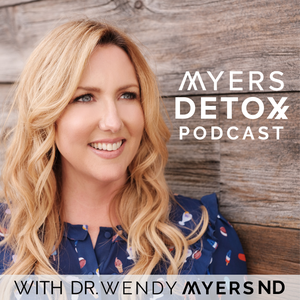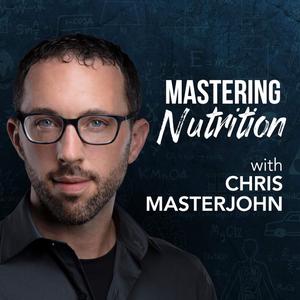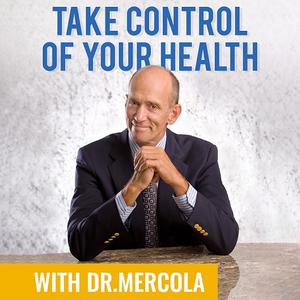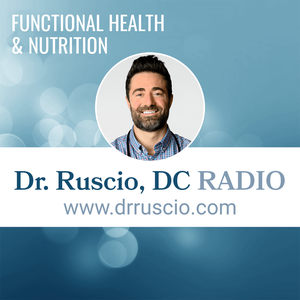
Intelligent Medicine
Dr. Ronald Hoffman
Intelligent Medicine
- 32 minutes 3 secondsHormone Solutions and Misconceptions with Dr. Erika Schwartz, Part 1
Comprehensive Insights into Bioidentical Hormone Replacement Therapy with Dr. Erica Schwartz, author of “The New Hormone Solution.” In this episode of the Intelligent Medicine Podcast, Dr. Ronald Hoffman speaks with Dr. Erica Schwartz, an expert in bioidentical hormone replacement therapy. They discuss the evolution and controversies surrounding hormone therapies, including the impact of the Women's Health Initiative study. Dr. Schwartz shares her insights on the importance of a tailored approach to hormone replacement, the benefits of different forms of estrogen and progesterone, and the role of testosterone, DHEA, and lifestyle choices in comprehensive care for menopause and andropause. Additionally, they explore the topics of women's sexuality, the pros and cons of osteoporosis drugs, and the necessity of incorporating a holistic lifestyle approach for overall health and longevity.
5 February 2025, 7:01 am - 33 minutes 4 secondsHormone Solutions and Misconceptions with Dr. Erika Schwartz, Part 2
Dr. Hoffman continues his conversation with Dr. Erica Schwartz, author of “The New Hormone Solution.”
5 February 2025, 7:00 am - 32 minutes 48 secondsUnveiling Corruption in Alzheimer's Research, Part 1
Investigative journalist Charles Piller reveals deep-seated corruption in Alzheimer's research as chronicled in his book, “Doctored: Fraud, Arrogance, and Tragedy in the Quest to Cure Alzheimer's Disease.” The discussion delves into the issues surrounding Big Pharma's influence, fraudulent scientific studies, and the implications of a controversial 2006 experiment at the University of Minnesota. They also address the costly and marginally effective Alzheimer's drugs like Aducanumab, the challenges faced by alternative research hypotheses, and the significance of improving scientific integrity and checks and balances in medical research.
4 February 2025, 7:01 am - 26 minutes 2 secondsUnveiling Corruption in Alzheimer's Research, Part 2
Dr. Hoffman continues his conversation with investigative journalist Charles Piller, author of “Doctored: Fraud, Arrogance, and Tragedy in the Quest to Cure Alzheimer's Disease.”
4 February 2025, 7:00 am - 42 minutes 31 secondsIntelligent Medicine Radio for February 1, Part 1: Potent Immune System Support
The exorbitant cost of new drugs touted for psoriasis in direct-to-consumer ads highlights everything wrong with our medical system; When gastric bypass surgery sends blood sugar out of control; A campaign to ban ultra-processed foods from school meals may help alleviate nutritional threats to kids—but healthy eating begins at home; With winter viruses making the rounds, a remarkable supplement offers potent immune system support.
3 February 2025, 7:01 am - 42 minutes 16 secondsIntelligent Medicine Radio for February 1, Part 2: Bright Light Therapy
What are the downsides of pacemakers? Rethinking low-protein diets for chronic kidney disease; Bright light therapy and creatine alleviate depression; Withdrawal from World Health Organization assailed—but the U.S. can’t afford to abdicate to its flawed dietary recommendations; Does a positive ANA blood test necessarily mean you’re destined to develop an autoimmune disease? Unprecedented levels of sedative drug abuse among young people calls attention to “Anxious Generation."
3 February 2025, 7:00 am - 22 minutes 59 secondsLeyla Weighs In: The Integration of Culinary Medicine in Modern Healthcare
In this episode of Intelligent Medicine, Nutritionist Leyla Muedin discusses the rising importance of integrating culinary medicine in modern healthcare. Leyla emphasizes the need for blending ancient dietary wisdom with contemporary scientific practices to improve overall health and prevent disease. She highlights how convenience foods laden with preservatives and additives are detrimental to our gut health and advocates for a more thoughtful approach to nutrition. Traditional practices from Chinese and Ayurvedic medicine are revisited, stressing the importance of addressing root causes rather than relying purely on pharmacological solutions. Leyla calls for a healthcare approach that includes nutrition professionals to provide personalized dietary advice, ultimately leading to a proactive, holistic, and sustainable health management system.
31 January 2025, 7:00 am - 32 minutes 56 secondsQ&A with Leyla, Part 1: Agave v. Stevia
- Upcoming congressional hearings for RFK, Jr to head HHS
- I sleep four hours a night and feel fine, but is there a sleep supplement you recommend?
- Is agave a better sugar substitute than stevia? Any cautions about using agave?
30 January 2025, 7:01 am - 38 minutes 45 secondsQ&A with Leyla, Part 2: Giving Blood
- Do you take all of your supplements when you go on vacation?
- I give blood at least once a year and now my ferritin level is 28. What should it be?
- Long-term use of statins can cause insulin resistance and associated elevations in fasting insulin
- Can anybody recover from primary progressive aphasia?
30 January 2025, 7:00 am - 31 minutes 56 secondsUnlocking the Health Secrets of Vinegar with Dr. Carol Johnston, Part 1
In this episode of the Intelligent Medicine Podcast, Dr. Ronald Hoffman interviews Dr. Carol Johnston, a professor of nutrition and associate dean at Arizona State University, dubbed 'The Vinegar Lady' for her extensive research on vinegar's health benefits. Dr. Johnston discusses the scientific basis for using apple cider vinegar to manage blood sugar levels, particularly in pre-diabetics, and its potential impacts on other conditions like depression. She explains how vinegar (acetic acid) affects metabolism and digestion. Additionally, Dr. Johnston highlights her research on high protein, low-fat diets, ketogenic diets, and the importance of maintaining a balanced intake of vitamins, especially B6 and C, due to common deficiencies in the American diet. The conversation includes practical dietary tips and addresses concerns like how to incorporate vinegar safely into daily consumption.
29 January 2025, 7:01 am - 33 minutes 1 secondUnlocking the Health Secrets of Vinegar with Dr. Carol Johnston, Part 2
Dr. Hoffman continues his conversation with Dr. Carol Johnston, PhD, RD, Professor of Nutrition, in the College of Health Solutions, Arizona State University.
29 January 2025, 7:00 am - More Episodes? Get the App
Your feedback is valuable to us. Should you encounter any bugs, glitches, lack of functionality or other problems, please email us on [email protected] or join Moon.FM Telegram Group where you can talk directly to the dev team who are happy to answer any queries.
 Myers Detox Podcast
Myers Detox Podcast
 Mastering Nutrition
Mastering Nutrition
 Dr. Joseph Mercola - Take Control of Your Health
Dr. Joseph Mercola - Take Control of Your Health
 Dr. Berg’s Healthy Keto and Intermittent Fasting Podcast
Dr. Berg’s Healthy Keto and Intermittent Fasting Podcast
 The Doctor's Farmacy with Mark Hyman, M.D.
The Doctor's Farmacy with Mark Hyman, M.D.
 Dr. Ruscio Radio, DC: Health, Nutrition and Functional Healthcare
Dr. Ruscio Radio, DC: Health, Nutrition and Functional Healthcare